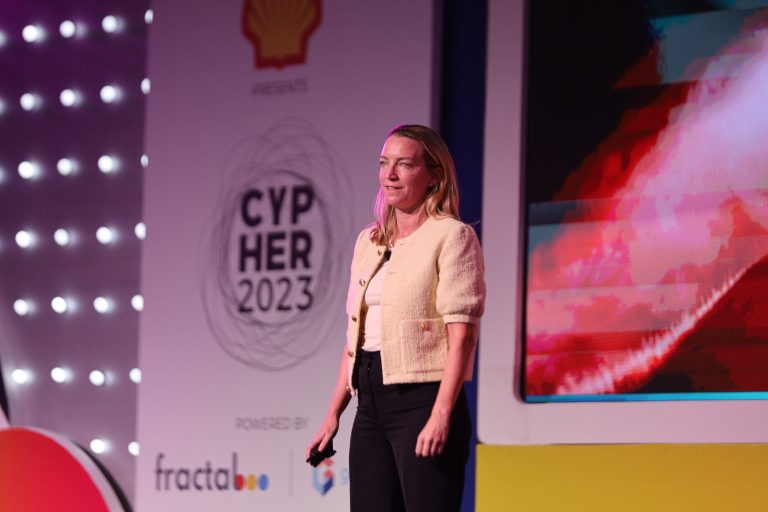|
Listen to this story
|
Of late, many experts believe that blockchain is one of the solutions to fight climate change and can be used to improve the transparency, accountability, and traceability of greenhouse gas emissions. Moreover, it helps companies provide more accurate, reliable, standardised, and readily available data on carbon emissions. Many governments are also experimenting with it at the policy level and exploring ways to prolong the issue.
Through smart contracts, carbon footprint across the entire value chain can be best calculated, tracked, and reported as they provide instant authentication, verification of real-time data and clear data records.
All of this sounds great. But, is it really possible?
The UK withstood its worst-ever summer in July 2022 when a scorching heat wave smothered Europe. Meanwhile, Delhi–touted as the most polluted city in the world– saw the lowest pollutants in the air this Diwali.
Climate change has spiralled beyond control and unfortunately, doesn’t wait for technology to solve the problem. The right time to take action is now. The crisis worsens with delayed regulatory responses at the country and global levels, and raising public awareness is the only way forward.
Lessons from the past
The Covid-19 pandemic, for example, has been one of the greatest learnings of our times. So many countries today successfully beat the deadly coronavirus, not with blockchain, or large tech corporations solving the problem, but via community awareness and self-isolation measures, we were able to overcome the crisis. Obviously, later came the vaccination and the technology bit, which acted as an enabler and made the overall process much smoother.
Another interesting observation at the time was the sharp drop in carbon emissions. But it was only short-lived as things started to return to normal, and so did the carbon emissions.
As per the IPCC report, human-induced climate change is causing dangerous and widespread disruption in nature and affecting billions of lives worldwide. Despite the efforts such as the Paris Agreement by the UN, which was signed in 2015, it has barely moved the needle.
What is the solution?
“I do not believe in tech-based solutions or the tech solutionism,” avered Constanza Gomez Mont, founder and principal of C-Minds, an impact innovation agency that designs and deploys strategies for economic and social development.
She said that there is a need for more and more case studies that are local and have a measurable impact on the lives of the community, creating bio economies and sustainable practices. “Honestly, the global conversation serves as an umbrella for the vision and for energising, but where the real work lies, and the real challenges lay are at the very local scale,” she added, pointing at the development of edible forests.
In line with the Paris Agreement on climate, she said that you could go through all the commitments and see it reflected on a very local scale. “So, I believe that the nature of the challenge is you do need to have this global discussion that is available for sure. But, I do believe in the power of having a local ecosystem that talks about the nature of things like climate change, and that specifically does not treat tech as a go-to option, which is going to solve everything,” she added.
Climate change and buying of carbon credits
Many companies are discussing going carbon neutral and carbon negative in the foreseeable future. For instance, most companies have joined the Climate Pledge to reach net-zero carbon emissions by 2040 – i.e. ten years ahead of the Paris Agreement.
“Regulation is driving the big part of the conversation,” said Mont. She said that she believes in the power of voluntary credits. “But, let’s be real, what is driving and setting a bar of best practices is the regulatory approach,” she added.
“I believe you have to take that into a greater approach and amplify the regulation. I am so glad you are doing this voluntarily, but, like climate change, you are kidding, right?” avered Mont worryingly.
She said that she is seeing exponential growth in the demand for carbon credits (one of the most talked about applications in blockchain) to supply their individual business goals, hopefully, carbon negative. “But, I am a bit afraid here, like how can the funds of this go towards projects that empower local communities because we are seeing more and more companies just paying for services, and there is no question asked if it is creating a bio-economy,” she added.
Further, she said we are just pouring in with solutions like planting trees without considering social factors. In other words, more demand means more supply of projects. Therefore, it becomes more important to invest the funds and meet the business goals, as well as one-to-one community development. It is normally the people at the bottom of the pyramid that are the protectors of nature reserves.
That is where the bigger questions come into play: How these carbon creditors are empowering the local communities, and how are they empowering a symbiotic relationship between community and development alongside biodiversity conservation?
Blockchain, really?
Blockchain technology, or any other technology, in this case, to track and report carbon emissions can’t be the solution. There are bigger things at stake which require grassroots-level implementations and continuous monitoring of the well-being of the overall community, alongside empowering the owners of the land and what benefits they get from the whole engagement.



















































































